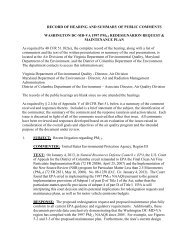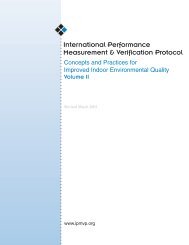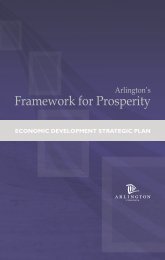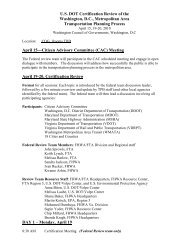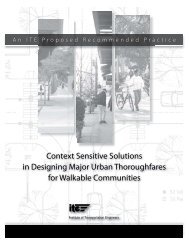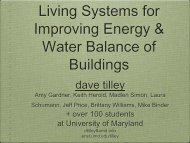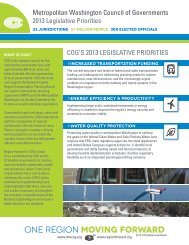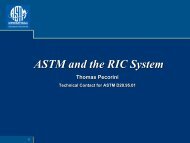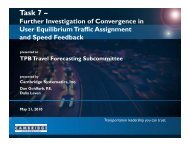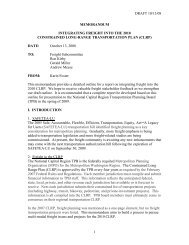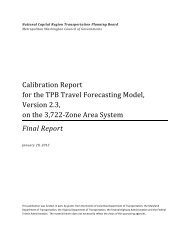PTI Local Government Energy Assurance Guidelines - Metropolitan ...
PTI Local Government Energy Assurance Guidelines - Metropolitan ...
PTI Local Government Energy Assurance Guidelines - Metropolitan ...
Create successful ePaper yourself
Turn your PDF publications into a flip-book with our unique Google optimized e-Paper software.
<strong>Local</strong> Voices<br />
Portland, Oregon<br />
“The Portland Office of Emergency Management is the lead agency managing the Portland <strong>Local</strong> <strong>Energy</strong><br />
<strong>Assurance</strong> Plan. Portland is subject to hazards that could compromise our basic functions if our critical<br />
infrastructure is not managed and maintained and if our community is not fully aware of their part in<br />
protecting the critical energy infrastructure. To minimize damage from potential hazards many disciplines<br />
need to identify what they are currently doing to manage use of energy, the risks to their services due<br />
to lack of energy, and their plans for restoration of services after a disaster. Through the <strong>Local</strong> <strong>Energy</strong><br />
<strong>Assurance</strong> Planning process, Portland committee members will determine what assets are important, how<br />
they will mitigate the impact of hazards on their assets, how they will coordinate response and recovery of<br />
the city, and what the impact of an energy outage would be on the economy and environment.”<br />
Many local government energy assurance working groups also involve non-governmental organization (NGO)<br />
experts in their plan development process. For example, an NGO that works with special needs and disabled<br />
populations is an important asset when discussions involve the transportation of these individuals to safe locations<br />
during energy and other emergencies.<br />
Key Questions<br />
…in Establishing an <strong>Energy</strong> <strong>Assurance</strong> Working Group<br />
1. Does the working group candidate bring needed expertise to the group?<br />
2. Can the candidate speak on behalf of his or her agency or company and obtain access to<br />
relevant operational information?<br />
3. Does the candidate have the time to attend working group meetings?<br />
4. Will the candidate actively contribute to the working group?<br />
5. Can the candidate bring additional resources to the working group?<br />
6. Is the candidate likely to stay on the working group through the end of the energy assurance<br />
planning process?<br />
7. Is the candidate likely to educate and interest others in local energy assurance efforts over the<br />
life of the project and beyond?<br />
8. Does the candidate have experience participating in other similar working groups?<br />
9. Are candidates likely to collaborate and work together?<br />
3.2.3 Build Personnel Redundancy into the Planning Framework<br />
<strong>Energy</strong> assurance planning can be a multi-year process, and some working group members are likely to be replaced<br />
along the way. New job opportunities, retirement, changes in responsibilities, reductions in force, and organizational<br />
restructuring will inevitably occur during most energy assurance planning processes. It is necessary to be prepared<br />
<strong>Local</strong> <strong>Government</strong> <strong>Energy</strong> <strong>Assurance</strong> <strong>Guidelines</strong> – Version 2.0 | 35



